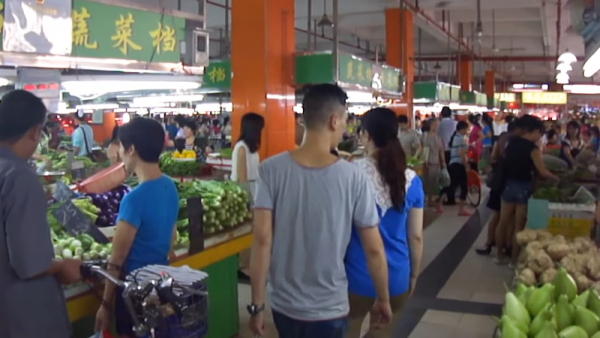By KM Diaz, | March 28, 2017

Since April 2015 until March 2016, roughly 15 percent of the 2,175 rumors were publicly read and recorded on WeChat and associated to its food-and-health news category.
Several fake food stories have gone viral in China. Consumers were concerned about the safety of foods. However, some of the reports are said to be fake which only create an uncertain climate for consumers and the manufacturers who cater to them.
Zeng Huaqing questioned himself why some people thought that seaweed might be made out of plastic. On February 17, one of his customers sent him a 10-second long video on WeChat that he found a black plastic in a bag of seaweed. Zeng has been operating a wholesale seaweed business for 17 years.
Like Us on Facebook
Although Zeng said that the video was nonsense, it gathers almost two million views on Weibo with 20 various versions. Since then, the wholesale price of the seaweed products declined by 50 percent in Jinjiang - southern Chinese coastal city where Zeng's company was located.
The Chinese food safety officials strongly opposed the accusations in the video, in which, the source hasn't been shown. The content only reveals how the speaker dips a piece of dry seaweed and expands it to show how it is translucent like thin plastic.
The seaweed is supposedly semi-transparent after drained in cold water. The temperature used to boil the seaweed is not high enough that's why the food can't be torn apart, Ruan Guangfeng explained, the director of communication and research at China Food Information Center.
Though the rumor is now clear, still, the damage has been done. The wholesale price of Zeng's seaweed products dropped 80,000 Yuan ($11,600) per metric ton to about 40,000 Yuan ($5,800) in a week.
According to Zhu Ying, director of the journalism school at Guangdong University of Foreign Studies, the citizens often concerned about news related to health and security. That is why food rumors in China spread quickly every time.
Zeng's seaweed plastic rumor is just a small portion of the fake news about foods spread across the Chinese internet. Since April 2015 until March 2016, roughly 15 percent of the 2,175 rumors were publicly read and recorded on WeChat and associated to its food-and-health news category, according to the published paper from Sun Yat-sen University's Big Data and Communication Laboratory in April.
The rumor concerning "crayfish is filled with parasites" was shared and viewed over 54 million times on WeChat in 2016. Chinese Institute of Food Science and Technology (CIFST) stated in the annual food conference that the claim is too exaggerated since cooked crayfish is safe to eat. In the same event, CIFST also identified some of the other fake food stories such as "pork was contaminated with parasites."
To combat the rumors from circulating, food producers should be transparent in their products. In addition, it is important to educate the people to build trust between consumers and manufacturers, Zeng noted.
-
Use of Coronavirus Pandemic Drones Raises Privacy Concerns: Drones Spread Fear, Local Officials Say

-
Coronavirus Hampers The Delivery Of Lockheed Martin F-35 Stealth Fighters For 2020

-
Instagram Speeds Up Plans to Add Account Memorialization Feature Due to COVID-19 Deaths

-
NASA: Perseverance Plans to Bring 'Mars Rock' to Earth in 2031

-
600 Dead And 3,000 In The Hospital as Iranians Believed Drinking High-Concentrations of Alcohol Can Cure The Coronavirus

-
600 Dead And 3,000 In The Hospital as Iranians Believed Drinking High-Concentrations of Alcohol Can Cure The Coronavirus

-
COVID-19: Doctors, Nurses Use Virtual Reality to Learn New Skills in Treating Coronavirus Patients











